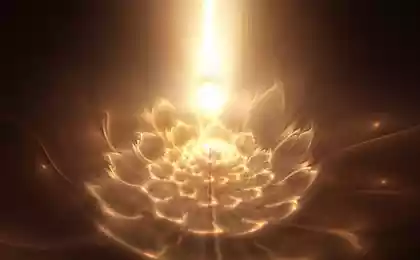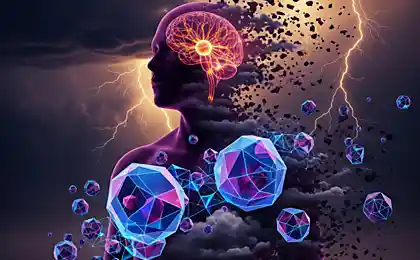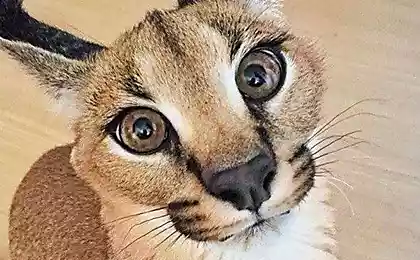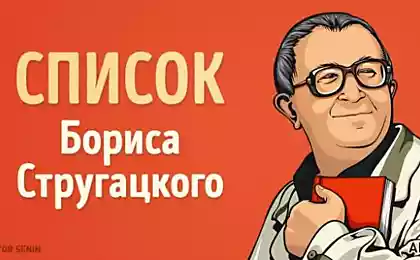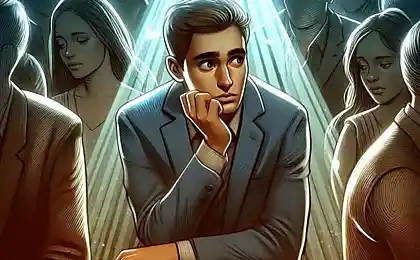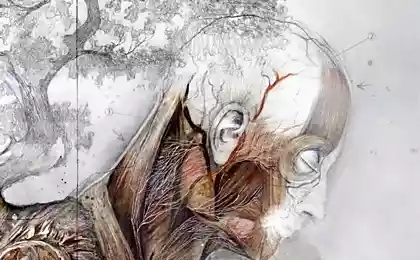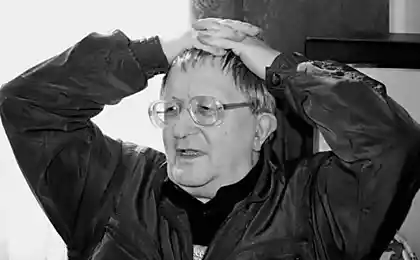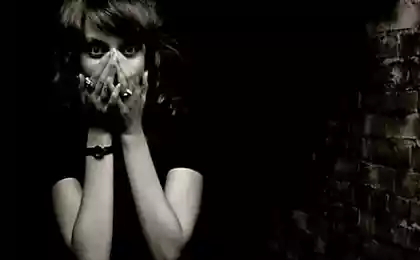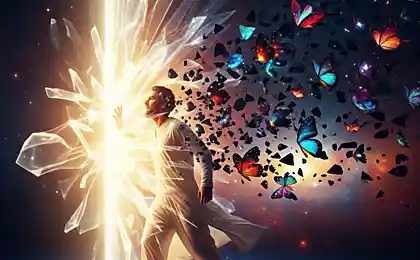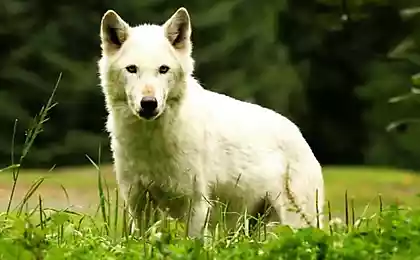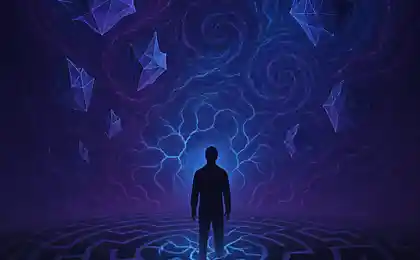763
How to die from fear
The expression "scared to death" sounds like a figurative, but this does happen - and with the people and with animals.
The death rate from heart attacks increases during earthquakes, financial crises and civil unrest. More at football matches - in stoppage time. And while watching horror movies.
The body is so arranged that it can literally "turn off" from fright.
As it happens
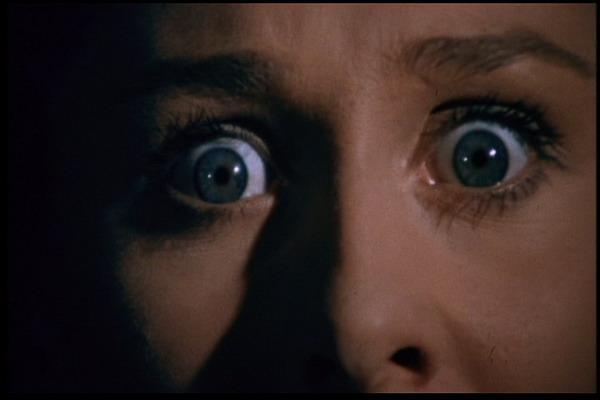
The heart is a set of tubes, surrounded by muscles. Muscle support and compress the tube. Blood passing through the tube, pushing them on the inside. Muscles under pressure from the outside.
Doctors from Japan drew attention to the fact that the symptoms of a heart attack often refer young and generally healthy people who for whatever reason are constantly in a state of stress.
After careful examination of the heart of one of the patients the doctor discovered an elongated extension of one of the cells, which is called Takotsubo cardiomyopathy (Takotsubo translated as "octopus trap").
The work of the heart muscle associated with the rhythm, which is supported by means of the nervous system. When we are scared body produces stress hormones called "catecholamines", which causes the heart muscle to work much faster and more intense than usual.
And it helps a lot - when you need to escape from a wild animal. But when from us absolutely nothing depends on hormones which are very toxic, the only one hurt. Their excess leads to increased pressure on certain parts of the arteries or muscles.
In most cases, the syndrome Takotsubo curable. Sometimes, however, that the strong rhythm disturbance leads to death. Sometimes ventricle really
torn. Therefore, this phenomenon is popularly known as "broken heart syndrome»
But the disruption of the heart - it's not all evil, which causes the body to stress. Catecholamines literally "pierce" every muscle in the body, especially the skeletal muscles - those that are connected to the skeletal system. With the destruction of these muscles, their decay products into the blood, and then - in the kidney. Eventually, the kidneys no longer cope, there is poisoning of the body, and there is close to death. Scientifically, a process called rhabdomyolysis, or rhabdomyolysis. It can develop very quickly, but often takes a long time, accompanied by a continuous muscle tension and neurasthenia.
Deathtrap
The existence of the death of fear is well-known for a long time and veterinarians. They have always had to deal with the sudden death caught in the wild animals. They just called this phenomenon in another way - "capture myopathy".
From this syndrome die from one to ten per cent of the animals caught in bondage. To reduce the risk, people eventually learned to do without the chase, to avoid unnecessary noise and leaving some trapped animal to move. In addition, they noted that in order to prolong the life of the animal, to avoid looking directly into his eyes.
Even when the content of the survivors during the trapping is necessary to ensure that the risk of stress was reduced to a minimum. Workers zoos know animals better to keep in spacious enclosures and provide them with a place where you can always hide from the looks of visitors.
And yet it is essential to minimize noise. In a zoo giraffe died - due to the fact that in an open area near the opera was given. Employees of other zoos understand that animals, too, is the psychological incompatibility, when only a few zebras could not stand being in the same enclosure with the African buffalo and died.
The man in the same way as the animal can suddenly die from stress - just a different situation. Human emotions cause his body to respond to the financial crisis, the death of a loved one, troubles at school or at work in the same way as the body of a zebra - the need to constantly see in front of a big scary animal. We, like all animals, can feel trapped and locked in a cell with no hope of escape.
If a stressful situation does not weaken the body at some point just off. That is, a person can literally be "intimidated to death."
The death rate from heart attacks increases during earthquakes, financial crises and civil unrest. More at football matches - in stoppage time. And while watching horror movies.
The body is so arranged that it can literally "turn off" from fright.
As it happens

The heart is a set of tubes, surrounded by muscles. Muscle support and compress the tube. Blood passing through the tube, pushing them on the inside. Muscles under pressure from the outside.
Doctors from Japan drew attention to the fact that the symptoms of a heart attack often refer young and generally healthy people who for whatever reason are constantly in a state of stress.
After careful examination of the heart of one of the patients the doctor discovered an elongated extension of one of the cells, which is called Takotsubo cardiomyopathy (Takotsubo translated as "octopus trap").
The work of the heart muscle associated with the rhythm, which is supported by means of the nervous system. When we are scared body produces stress hormones called "catecholamines", which causes the heart muscle to work much faster and more intense than usual.
And it helps a lot - when you need to escape from a wild animal. But when from us absolutely nothing depends on hormones which are very toxic, the only one hurt. Their excess leads to increased pressure on certain parts of the arteries or muscles.
In most cases, the syndrome Takotsubo curable. Sometimes, however, that the strong rhythm disturbance leads to death. Sometimes ventricle really
torn. Therefore, this phenomenon is popularly known as "broken heart syndrome»
But the disruption of the heart - it's not all evil, which causes the body to stress. Catecholamines literally "pierce" every muscle in the body, especially the skeletal muscles - those that are connected to the skeletal system. With the destruction of these muscles, their decay products into the blood, and then - in the kidney. Eventually, the kidneys no longer cope, there is poisoning of the body, and there is close to death. Scientifically, a process called rhabdomyolysis, or rhabdomyolysis. It can develop very quickly, but often takes a long time, accompanied by a continuous muscle tension and neurasthenia.
Deathtrap
The existence of the death of fear is well-known for a long time and veterinarians. They have always had to deal with the sudden death caught in the wild animals. They just called this phenomenon in another way - "capture myopathy".
From this syndrome die from one to ten per cent of the animals caught in bondage. To reduce the risk, people eventually learned to do without the chase, to avoid unnecessary noise and leaving some trapped animal to move. In addition, they noted that in order to prolong the life of the animal, to avoid looking directly into his eyes.
Even when the content of the survivors during the trapping is necessary to ensure that the risk of stress was reduced to a minimum. Workers zoos know animals better to keep in spacious enclosures and provide them with a place where you can always hide from the looks of visitors.
And yet it is essential to minimize noise. In a zoo giraffe died - due to the fact that in an open area near the opera was given. Employees of other zoos understand that animals, too, is the psychological incompatibility, when only a few zebras could not stand being in the same enclosure with the African buffalo and died.
The man in the same way as the animal can suddenly die from stress - just a different situation. Human emotions cause his body to respond to the financial crisis, the death of a loved one, troubles at school or at work in the same way as the body of a zebra - the need to constantly see in front of a big scary animal. We, like all animals, can feel trapped and locked in a cell with no hope of escape.
If a stressful situation does not weaken the body at some point just off. That is, a person can literally be "intimidated to death."



